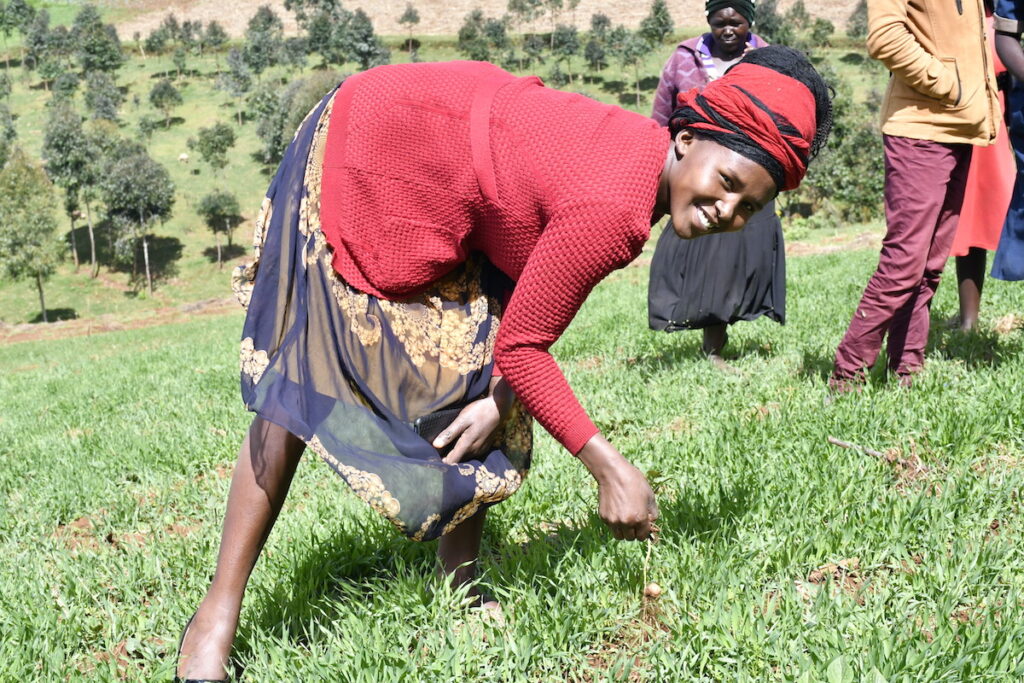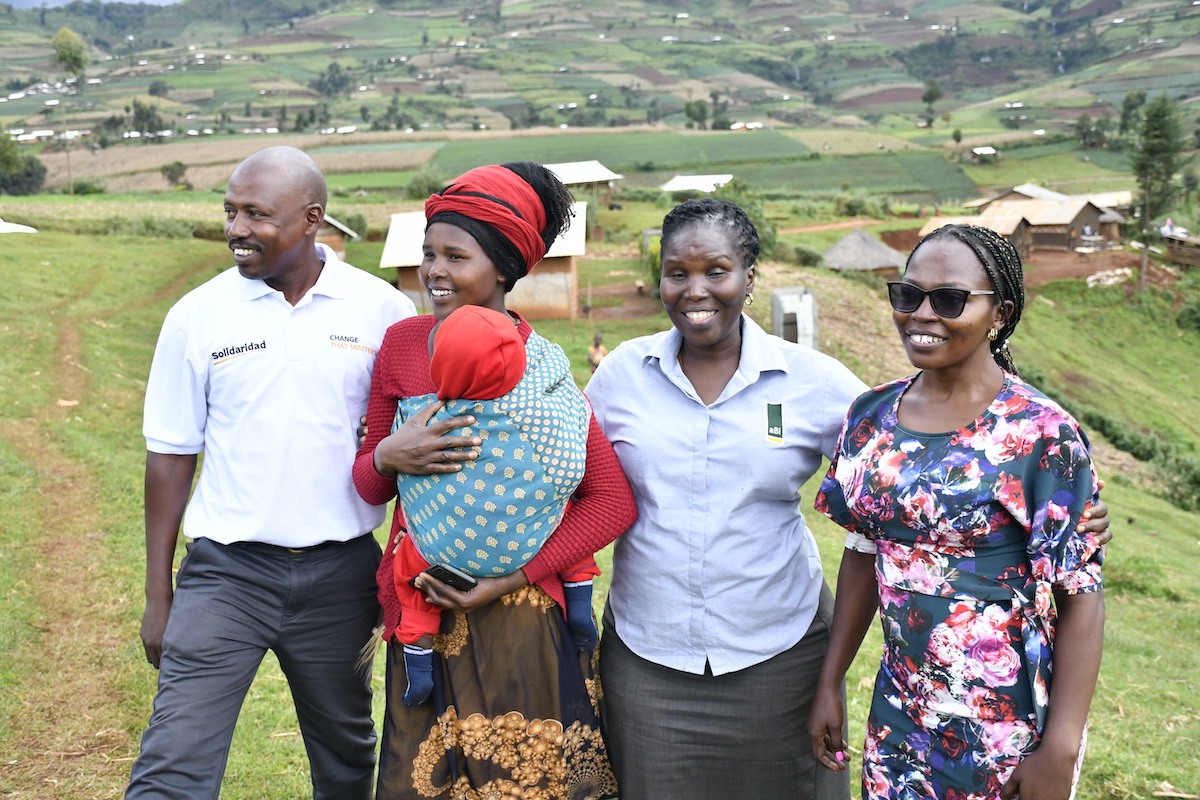Carol Sukuku, together with Solidaridad staff, look over the farmland in Uganda’s Bukwo District.
Carol Sukuku, a young farmer in Uganda’s Bukwo District, is among the participants in Solidaridad’s Scaling Sustainable and Equitable Value in Cereal Value Chains (S4S) project. Funded by aBi Development Limited, this initiative aids smallholder farmers as they work to enhance sustainable production and gain better market access for barley, sorghum and maize.
Carol cultivates crops and raises livestock. She works alongside 17 women and one man as members of the Tekantet Women’s Farmer Group, and together they achieved a significant milestone in December 2022. Despite the challenges posed by the region’s high-altitude, cold weather, and limited sunlight that hinder post-harvest processing, their collaborative efforts yielded 1,200 kilograms of barley from a 1.2 hectare farm, a remarkable increase from the 400 kilograms harvested in 2021.
Carol attributes the group’s success to Solidaridad’s training in barley cultivation. Though the project commenced before Carol’s involvement, its positive impact has resonated strongly with her and her fellow Tekantet Women’s Farmer Group members.
“Barley has been an outlet for me to escape poverty since Solidaridad started helping us in December 2022,” Carol remarked.

Through the S4S project, the Tekantent Women’s Farmer Group received comprehensive technical and business-oriented training, alongside essential agricultural equipment and inputs such as tarpaulin, fertilizers, and quality seeds. This support enabled them to improve their productivity (yields and quality) by 20 percent and increase income from their business by 50 percent.
Reflecting on the challenges she faced, particularly in post-harvest processing, Carol highlighted the issues arising from the region’s high altitude, cold climate and limited sunlight. Farming maize and potatoes was difficult since the plants were not well-suited to the high altitude climate; a turning point came when Solidaridad and Uganda Breweries Limited (project off-taker) recommended barley as a crop that could thrive in the high altitude climate.
After making the switch to barley, Carol’s family experienced a transformative shift in their livelihood. Previously struggling to provide for her family of five and ensure her children received quality education, Carol now sees a tangible improvement. “I believe life has changed for my household; we look healthy, as if we are formally employed in offices,” she shared.
For Carol, the lessons learned have been invaluable, “The project has served as our school, teaching us appropriate agricultural techniques and financial literacy, while also connecting us to the market.” While the S4S project came to an end in eastern Uganda in March of 2024, the skills and knowledge that farmers like Carol have acquired will continue to shape their lives and improve their livelihoods into the future.

